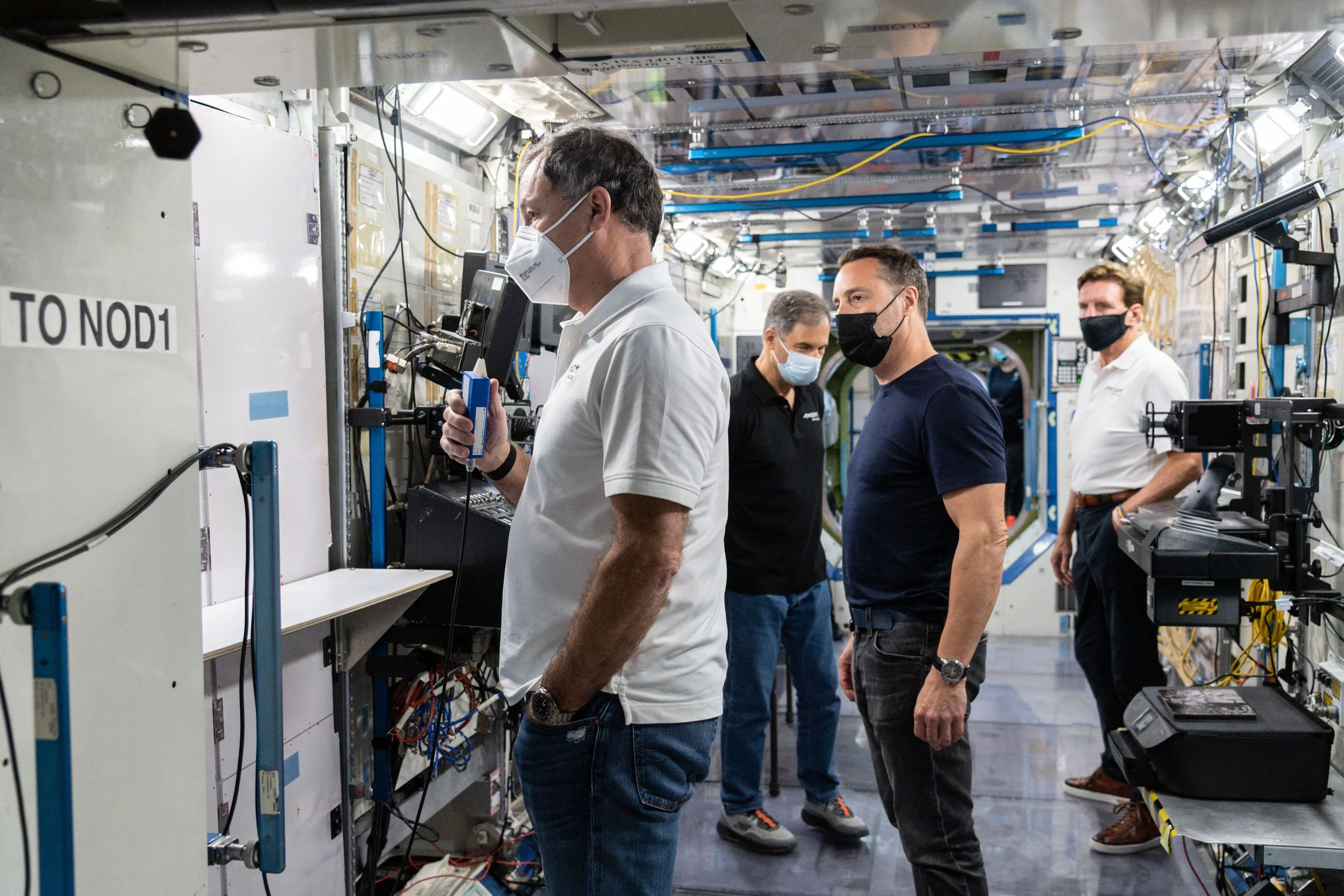HOUSTON – Axiom Space will host a virtual press conference at 11 a.m. EST Monday, Feb. 28, to preview the launch of Ax-1, the first all-private astronaut mission to the International Space Station (ISS). The launch is targeted for Wednesday, March 30 at 2:46 p.m. EDT from Launch Complex 39A (LC-39A) at NASA’s Kennedy Space Center in Florida.
During the 10-day mission, which includes eight days aboard the space station, the four-person multi-national crew will complete more than 25 research experiments developed for microgravity in collaboration with leading health and science organizations across the globe. Axiom Space, a leader in human spaceflight and space infrastructure, is committed to the commercialization of low Earth orbit.
To participate in the virtual press conference, media must contact media@axiomspace.com by 5 p.m. EDT, Sunday, Feb. 27 to receive call-in details. The virtual press conference will be available on Axiom Space’s YouTube channel at https://www.youtube.com/axiomspace.
Briefing participants are:
Michael Suffredini, President and CEO, Axiom
Michael López-Alegría, Ax-1 Crew Commander, Axiom
Christian Maender, Director, In-Space Research and Manufacturing, Axiom
Kathy Lueders, Associate Administrator, Space Operations, NASA
Robyn Gatens, Director, International Space Station, NASA
Phil McAllister, Director, Commercial Spaceflight Division, NASA
Benjamin Reed, Sr. Director, Human Spaceflight Programs, SpaceX
Ax-1’s crew includes Michael López-Alegría, Axiom vice president and former NASA astronaut, as commander; American entrepreneur and non-profit activist investor Larry Connor as pilot; investor and philanthropist Mark Pathy of Canada as mission specialist; and impact investor and philanthropist Eytan Stibbe of Israel as mission specialist. Axiom Space has contracted SpaceX to launch the Ax-1 crew to the International Space Station aboard a Falcon 9 rocket and Dragon spacecraft.
Ax-1 is the first of several planned Axiom missions to the space station, each a critical step toward Axiom Station, the first private space station. This new method of access to low-Earth orbit is progress toward a next generation platform, which will serve as a center for scientists, innovators, and entrepreneurs to pursue revolutionary breakthroughs in the unique environment of microgravity.

